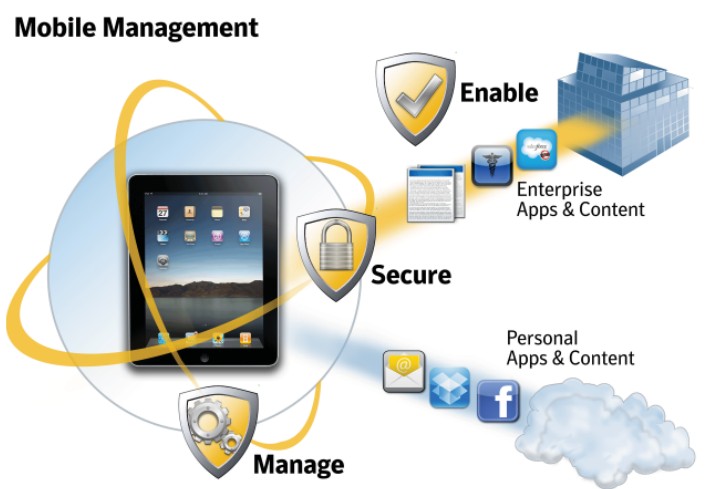In the corporate world, BYOD (Bring Your Own Device) has rapidly emerged as a trending term among companies of all sizes. Employees, not eligible to use a device provided by their employer, wish to avail the convenience of use of their personal smart devices at work. Though BYOD comes with its own security risks,MDM Solution helps organizations address all those challenges and provides a better control over their use.
Use of the feature-rich smartphones of today can enhance efficiency of a worker by offering mobile access to corporate information, even when traveling, as well as can enhance innovation and creativity. Moreover, organizations also get a chance to cut down on the operating costs, which is another reason, why the trend is gaining popularity.
Any drawbacks of BYOD?
Recent surveys suggest that employees willingly accept the BYOD trend, without being aware of the privacy concern of their personal data on the device. The reason for this couldn’t only be the lack of properly drafted agreements, but the employees giving only a quick overview to the terms and conditions due to their eagerness of putting their personal devices to work could also be a reason.
Mobile Device Management tends to focus on protecting the private enterprise data on employee device, remotely. Remote data wipe, an essential component of an MDM solutions could be useful, in case the device is lost or stolen. However, does securing the enterprise data on device compromise the employees’ privacy needs?
Risk of Personal Data Loss: Some MDM solutions lack the capability of segmenting device data, so fail to distinguish corporate and personal data. With this, an IT manager will wipe out all the data on device, including employee’s files along with the corporate data, in case the device is anticipated to be in the hands of an unauthorized user.
User Device can be Tracked Anytime: Apart from the loss of personal data, another major concern among employees is that the employers have access to view the applications installed on device, monitor internet usage, and track the device for the entire day, including non-office hours as well.
By far, most of the individuals would think about this as an attack on their privacy, and won’t readily allow their managers to monitor their activities on their device or undoubtedly, their location. In any case, this worry scores far lesser than the rising demand of workers to use their cell phones to access corporate data including the basics like messages and contacts.
Guide Employees About BYOD Policy
Employees should be taught about the organization’s security worries, so as to make them completely understand all the terms of a BYOD agreement that they will be signing. It would then be employees’ wise choice to acknowledge the terms of the agreement and allow their managers to keep an eye on their activities. Though creating an agreement and describing BYOD terms clearly demands inputs from not only IT managers but also from HR and legal departments.
There are 2 perspectives to view this agreement, where one side highlights the ability of employers to track down every activity of the user, but on the other side, the same could help locate user device, when lost. So there is some advantage to employees as well, with this part of a BYOD policy.
However, describing the benefits of a BYOD policy is easy, in terms of the ability to wipe the data on device, including both personal as well as corporate files. Thus, the main approach to an effective BYOD strategy demands an appreciation from both the business’ and worker’s point of view of the features included in the Mobile Device Management solution deployed by the organization.
Thus, DeviceMax provides comprehensive MDM to the Enterprises and companies so that their business data get safe and there security not breaches. DeviceMax also provides 14 days free trail so that you could get better understand the features of this MDM solution.
 November 3, 2016
November 3, 2016